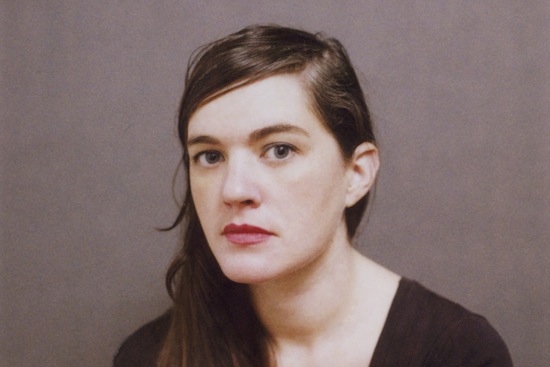Recently, the buzz around Julianna Barwick and Nepenthe’s release has been unavoidably and overbearingly positive. Pitchfork named it ‘Best New Music’, and the glowing review here at The Quietus described it as "vast and expansive, intimate and affecting all at once". It must be admitted though, that this writer was somewhat less convinced, and I found Nepenthe to be, frankly, a little weak. It’s not that Barwick’s a one-trick pony, but rather that her trick remains irritatingly underdeveloped. The Magic Place was raw and fresh enough to work well, but Nepenthe feels like an over-produced and under-composed mediocrity – not unlike Sigur Rós’ bland, and similarly Alex Somers produced, Valtari. Even so, there couldn’t be a better setting for Barwick’s pocket choirs than within the 300 year-old walls of St. Giles-in-the-Fields church on a warm summer’s evening.
Stepping out in front of the congregation with characteristic timidity, Barwick mumbles a soft “hello, isn’t this exciting”, before calmly taking position behind a keyboard, sampler, effects and mic setup, and softly taking off with the first wordless vocal of the night. It’s striking to see live, with Barwick slowly building line upon line of her reverbed voice, only occasionally breaking her shut-eyed concentration to periodically poke at the varied loop and effect devices laid out in front of her. Most affecting in a live setting, other than the sheer beauty of the whole thing, is the almost hypnotic way in which one loses track. After a minute or two of building layers, it’s impossible to connect the sound with the image, and mind-bending to try and map out the structure of her multiple loops. The boundaries between one ‘aah’ and the next ‘ooh’ are almost perceptible, until an additional vocal layer or imperfection in the loop snatches away any such tangibility. Furthermore, the structure of the church really adds to the experience, introducing the additionally perplexing blend of artificially reverbed sounds leaving their speakers only to suddenly bounce around inside naturally echoing stone and wood. Her instrument is hidden in plain view, with the voice feeling like a simplistic and comprehensible focal point for an audience, albeit one under expert control (her ability to harmonise is breathtaking). Yet the way in which the sounds in your ears are truly made remains something of a mystery, the journey between their source and the listener obscured.
Over the course of the evening, Barwick introduces additional instrumentation, including samples of strings (presumably recently made recordings of Iceland’s amiina) and her own minimal piano and keyboard interjections. After two typically ghostly wordless pieces, Barwick invites on stage guitarist Scott Bell, proudly declaring “I have a band mate now”. Bell’s interjections amount to little more than handfuls of volume pedal attacked guitar chords and notes. Minimal though they are, the guitar tones fill out the vacant low-end of the sound in the room, preventing the constant female choir sounds from becoming jarring. The biggest weakness to Barwick’s chosen modus operandi is the somewhat limited dynamic palette, and this is something else the guitar battles, adding much-needed lifts and peaks and troughs to songs that could arguably suffer from monotony.
For the grand finale, Barwick introduces a five-piece girl choir to the stage, whose contributions are surprisingly minimal. Rather than have the girls provide harmonies and the florid choral singing one would expect, the choir instead merely emphasised the repeated the key lines and codas in Barwick’s final three tunes. In particular, One Half, fresh from the newly released Nepenthe benefitted massively from being both extended by Barwick, and embellished by the choir. Rather than sounding like a half-baked Enya outtake (as on the record), in the hands of the beefed up Barwick live band, the song’s refrain of “I guess I was asleep that night” became a captivating chant of pure innocence, bursting with honesty and frankness in its simplicity, something which permeates Barwick’s entire live show and stage presence. Thanks to the omnipresent praise for Barwick’s new album, one would almost expect some sort of life-changing epiphany. Although the show doesn’t quite deliver to that level, Barwick’s still truly a one-of-a-kind, and a beguiling and unique voice. There’s great potential in her, but it remains somewhat untapped. Happy as Barwick is to idly play with her enticing aesthetic, she is still leaving it relatively un-mastered.


